'Last clinic' standing? Critics fear abortion case before Supreme Court could have nationwide impact on abortion facilities
Louisiana clinic disputes state law requiring docs to have admitting privileges
Kathaleen Pittman still can’t believe that she and her little abortion clinic from Shreveport, Louisiana, has a case before the highest court in the nation.
“Had anybody told me three years ago we would be preparing to go before the court this week, I would have thought they were crazy. I mean, we had precedent on our side, or so we thought,” Pittman said.
What she’s referring to is a Texas law that required doctors to have admitting privileges and for abortion clinics to meet the standards of ambulatory surgical centers; it was struck down by the Supreme Court just four years ago, after the court found that it placed an ‘undue burden’ on a woman’s ability to obtain an abortion. Her clinic is now challenging a Louisiana law that requires doctors to have admitting privileges in nearby hospitals, and the Supreme Court heard opening arguments for both sides on Wednesday.
“If you review the two bills side by side, all they did was adjust the wording in different orders. They’re virtually the same, they truly are,” Pittman told "Nightline." “I think it's just disingenuous, really.”
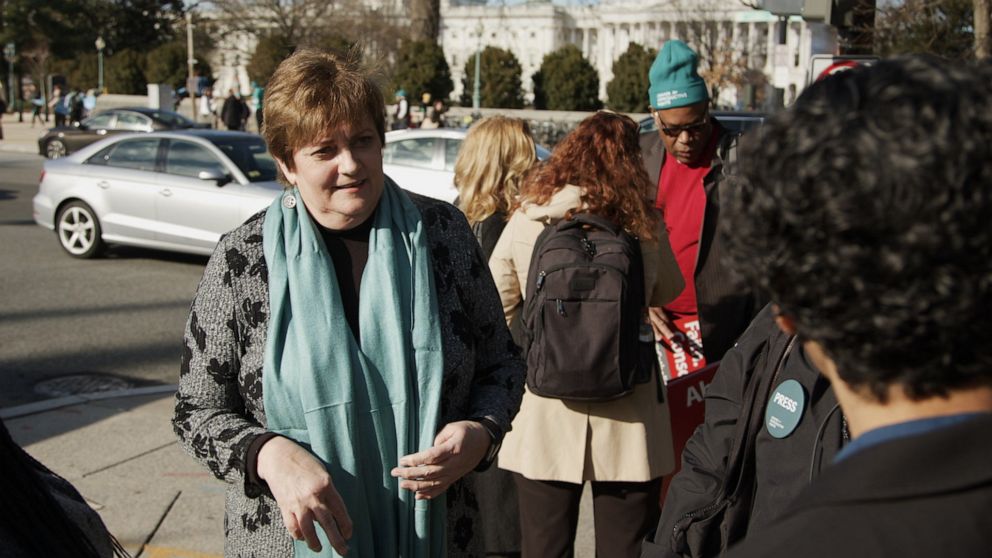
Louisiana argues that the two laws are different enough to merit a distinction, and that the state law helps guarantee a basic standard for women’s health.
“We looked at the facts, looked at the decision from the Supreme Court, looked at our case. They were very, very different. So it just wasn't a hard decision,” said Elizabeth Murrill, the Solicitor General for Louisiana who represents the state in the case. “I mean, our facts are different, our law's different, our regulatory structure is different. The history in our state is different.”
“I mean, it's a good law. It protects women. We have a history of very serious health and safety violations and noncompliance by doctors, by abortion doctors,” she said.
Yet for critics of the Louisiana law, this is yet another attempt by a state to try and inhibit women from being able to access abortions; a procedure abortion rights advocates call safe with ‘extraordinarily low’ risks of complications at less than 1%, especially if done in the early term.
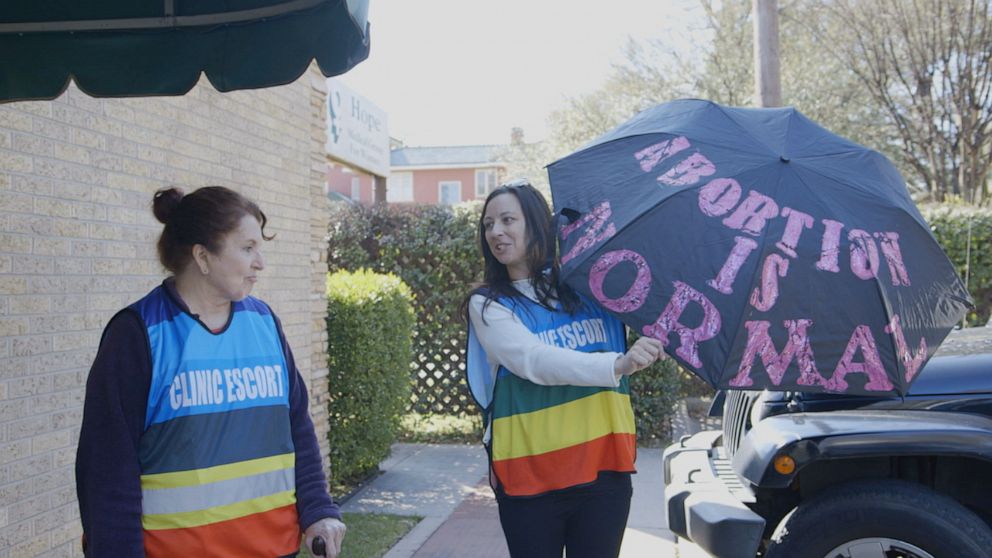
If the Supreme Court were to rule in favor of the state, Pittman says that the new state requirements would mean that only one abortion facility in Louisiana would remain open: her clinic, Hope Medical Group. She fears that other states would quickly follow suit and enact similar laws restricting abortion access across the nation.
“That's going to put abortion care out of reach for a lot of women. And we're going to have some serious concerns about women's health,” Pittman said.
“Women attempting to take matters into their own hands. Women continuing in pregnancies that they cannot take care over, afford, because they can't afford to travel to another state to get care. Once again, we'll be back in the situation where women of means will be able to obtain care and the poor women or, you know, are going to be the ones faced with not being able to access care.”
Tightening restrictions across America
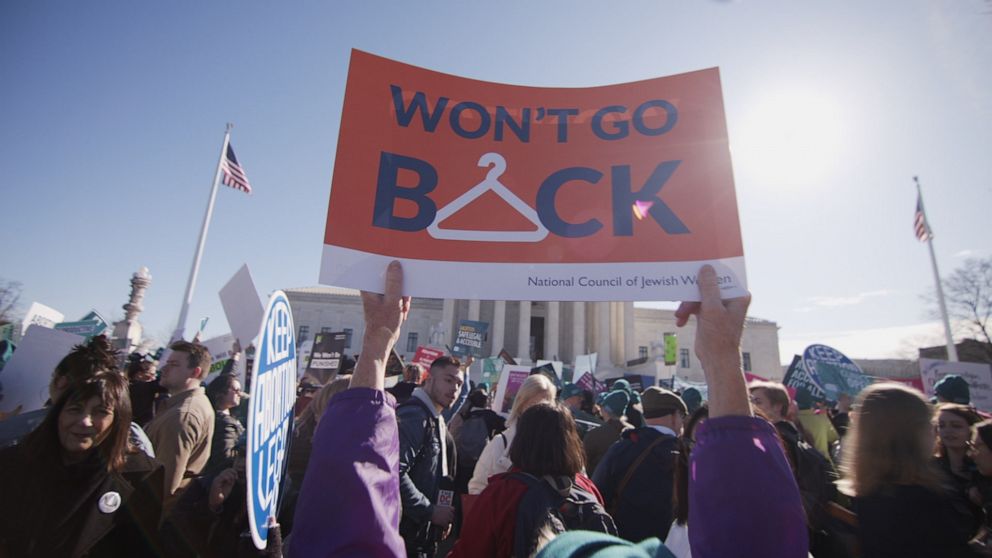
Pittman’s worries may not be unfounded. Over the past few years, several other states have passed laws and regulations, making it harder for abortion clinics to operate.
Last year, Alabama passed a bill making it a felony for doctors to perform abortions, causing an uproar across the country.
Missouri also tightened regulations on abortions, and nearly shuttered the state’s only clinic, withholding the clinic’s license after an audit last year.
Dr. Colleen McNicholas, OB-GYN, Reproductive Health Services of Planned Parenthood of the St. Louis Region, says the proposed regulations are a strategy to make it harder for the clinics to operate.
“The services that we provide in this clinic really aren't requiring or deserving, I should say, of any special regulation,” McNicholas told "Nightline." “There are procedures that we could provide in our own office, but one of the strategies that the anti-choice movement for a long time has been to try and find ways to chip away at access to abortion care and through regulations.”
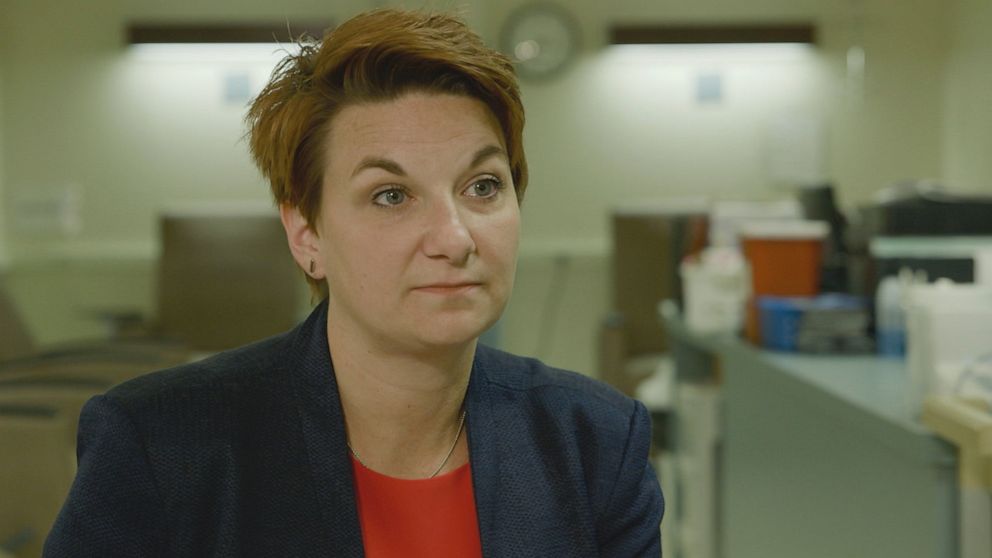
According to the Guttmacher Institute, there are 24 states impacted by laws or policies that regulate abortion providers and go beyond what is necessary to ensure patient’s safety, a series of what abortion-rights advocates call “TRAP,” or targeted regulation of abortion providers, laws. And after President Donald Trump, who has made banning abortion a legislative priority of his administration, appointed two new conservative-leaning justices to the Supreme Court, there is a belief there could be many more.
“We have seen a flurry of activity in the states, really in the last year-and-a-half to restrict abortion in ways that we actually hadn't seen previously,” said Kate Shaw, a professor at Cardozo Law. “Since the confirmation of Justice Brett Kavanaugh, a lot of states [that] have looked to the Supreme Court have said, ‘You know what, I think that the legal landscape has really changed,’ and they have moved to restrict.”
Core of the Case
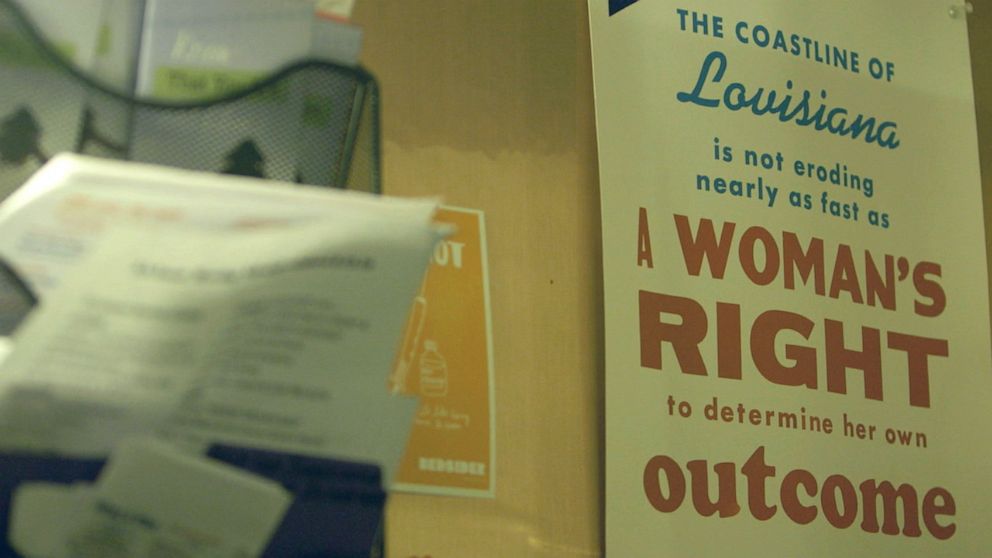
In the last 10 years, the Louisiana state legislature has passed several bills regulating access and functions of abortion clinics. Advocates say these laws have caused a gradual decrease in the number of clinics in the state.
Through all this, Hope Medical Group has managed to keep its doors open. But in 2014, Louisiana passed a law requiring doctors who perform abortions in the state to have admitting privileges to a hospital no more than 30 miles away should urgent care be necessary.
“[It’s] basically a law that requires doctors who perform abortions to have a relationship with a nearby hospital — what's called an admitting privileges relationship,” Shaw said.
“One reason it's difficult to get these privileges is that there isn't even always a hospital nearby. Another reason is that these privileges often require a certain number of admissions in each calendar year, and very early abortions are extremely safe procedures and doctors who perform abortions just may never need to admit patients, thus undermining their ability to even get these privileges,” she said.
Hope Medical Group and its supporters agree.
“Admitting privileges sound good on paper. But they're really a catch-22. Doctors don't need admitting privileges to provide abortion care. And the real kicker is, doctors can't get admitting privileges if they provide abortion care,” said Travis. J. Tu, Senior Counsel at the Center for Reproductive Rights and one of the lawyers representing Hope Clinic in the Supreme Court case. “If this law goes into effect, all the doctors at Hope Clinic will be put out of the practice of medicine and Hope will close. That makes no sense.”
Murrill says that the idea that abortion clinics will not be able to obtain admitting privileges is false.
“The evidence said it. They could get them. They did get them during the course of the litigation. So it's not just me saying it. They demonstrated, during the course of litigation, that they could get them. One of the doctors already had them. He'd had them for 30 years. Two of the doctors obtained them during the course of the litigation in New Orleans and in Baton Rouge. So this idea that all the clinics are going to close, that they can't get privileges, that there will only be one abortion-- I mean, that's all simply not accurate,” she said.
“It's not even accurate to say that the clinics would close.” Murrill continued. “Because there are multiple ways they can avail themselves of administrative procedures so that they can stay open even if they're not compliant yet. They just need to call the department of health and work out a compliance plan.”
But during oral arguments before the Supreme Court on Wednesday, lawyers representing Hope Medical Group stated that doctors faced significant challenges in trying to obtain these admitting privileges, citing attempts to 15 different hospitals over the past year and a half to obtain admitting privileges.
“These kind of details are really besides the point,” said Tu. “Doctors should not need to make herculean efforts to obtain something that does not benefit them or their patients in any way. Both the trial court and Fifth Circuit found that admitting privileges have no health or safety benefit for abortion patients, so forcing doctors to obtain them is illogical and a clear attempt to shut down clinics.”
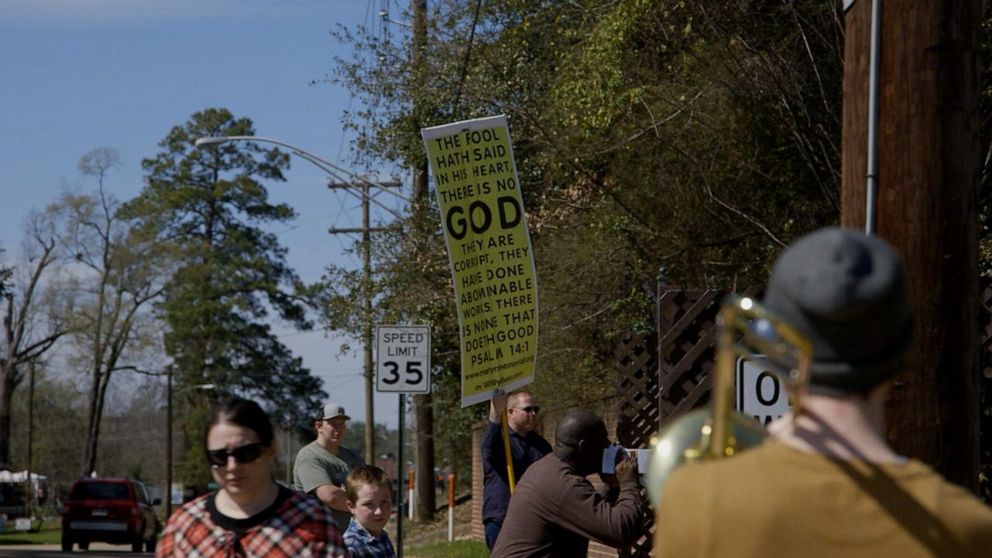
Because of the hurdles abortion providers face in obtaining admitting privileges, clinics in Louisiana fear that if the Supreme Court rules in favor of the law, women would technically not be able to easily access an abortion provider.
“Roe… has no purpose. If there is no access to abortion, it basically becomes ineffective. One doesn't have to overturn Roe. All we have to do is keep chipping away at this through the states, through the trap laws, keep chipping away at access,” Pittman said. “And you can say, oh, but Roe is still the law of the land, but without access to it. It's nothing. It’s meaningless.”
For Pittman and her 21 staffers at Hope Medical Group, they feel the responsibility keenly. Their clinic services not just 3,000 women from Louisiana, but also several neighboring states as well. Pittman says that women travel from Arkansas, Nebraska, Texas and Nebraska to come to her clinic for services. She fears that if her clinic were to be the last abortion care facility left in Louisiana, the doctor providing abortions will be overwhelmed by the number of patients, and the scrutiny, and quit.
“I won't lie and say I don't lose sleep over that,” Pittman said. “But I think, at the end of the day, when I'm talking with the staff about it or even talking with the patients who are aware of what's going on, I say, ‘What we need to do is concentrate on the here and now, take care of the patients that are currently in our care and make sure they have everything they need and really hope for the best.’”




